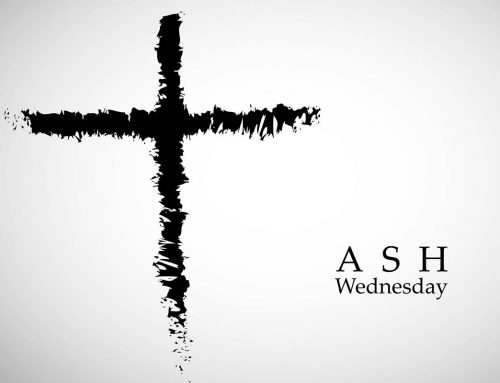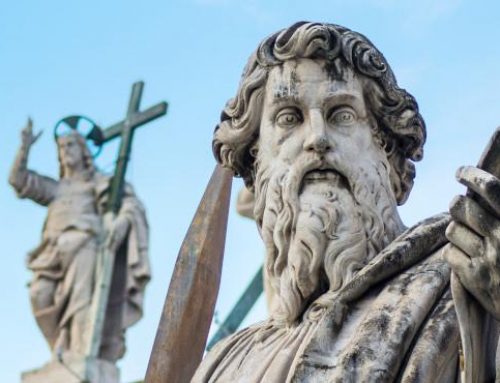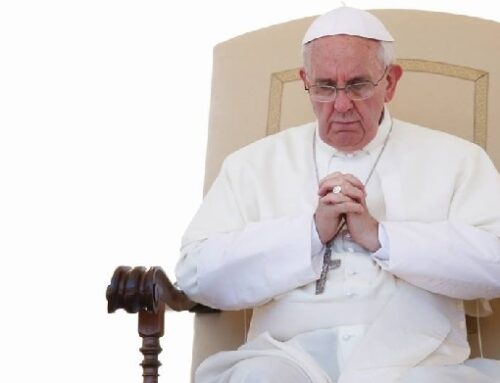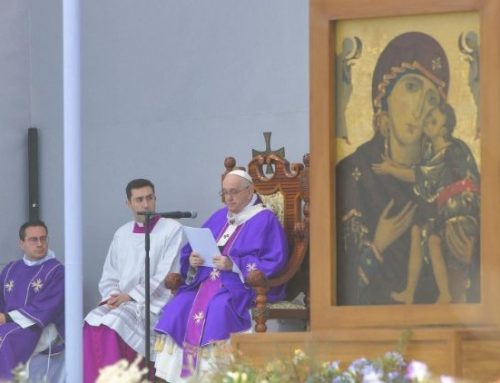The Pope said this receiving a delegation from the international association of delegates from the International Association of Penal Law (AIDP)
The Pope said this receiving a delegation from the international association of delegates from the International Association of Penal Law (AIDP)
Yesterday Francis received a delegation from the international association ofdelegates from the International Association of Penal Law (AIDP) and gave a long and detailed lecture-like speech discussing cases of abuse and problems affecting many corners of the world, without mentioning individual cases. He defined life imprisonment as a hidden death sentence (emphasizing that these kinds of sentences no longer exist in the Vatican). He denounced all forms of torture as a perverse “passion” human being have, particularly in modern-day concentration camps, in illegal assistance centres, psychiatric hospitals and police stations. He criticized secret “extraordinary renditions” and stressed that there is no longer talk of alternative prison sentences as well as “inhumane” prison conditions (all new prisons are full before the inauguration ceremony is even held). Francis also raised doubts over preventive detention when it is used abusively by public authorities. Once again he criticized corruption and human trafficking, recalling that these are private crimes that would not be possible without the cooperation of public powers.
Today’s society is not just characterized by a search for scapegoats who pay the price of social evils with their freedom and with their lives as was typical in primitive societies. Besides this, there is sometimes a tendency to deliberately create enemies,” Francis said. “The mechanisms that created this landscape are the same ones which allowed the expansion of racist ideas.”
The Pope primarily addressed the problem of “uncontrolled penal systems”. “The conception of penal law as the last resort limited only to the most serious of crimes committed against individuals and groups who are most worthy of protection. The debate over the replacement of prisons with other alternative penal sanctions has also died down,” Francis denounced. Bearing this in mind, jurists must counter such trends despite pressure from the mass media and from some politicians without scruples and some people’s impulse for revenge.”
Pope Francis then addressed the death penalty issue. “It is inconceivable that States today have no other means but the death penalty to defend people’s lives for unjust aggressors.” He then stressed that executions carried out by “extra-judicial” and “extra-legal” means are also a form of death penalty. These are deliberate killings committed by some States and their agents, often made to look like clashes with criminals or like the unintentional consequence of a reasonable, necessary and proportional use of force for the purpose of enforcing the law.” The death penalty is applied “illegally and to different degrees across the whole planet”.
On this note, the Pope went on to speak about imprisonment. Francis recalled that “life imprisonment was recently abolished from the Vatican criminal code. Life imprisonment is a hidden death sentence.”
The Pope denounced the various forms of inhumane detention (“These are no myths…”). Preventive detention, explained the Pope who lived under the Argentinian dictatorship, “when used improperly, is another modern form of unlawful punishment that is hidden behind legality”. Then there is the serious issue of detentions being made without criminal charges, not to mention the deplorable conditions of prisons across the planet. “This is the result of an arbitrary and merciless exercise of power over people who have been deprived of their freedom.” According to the Pope, “the capacity of all new prisons is exceeded even before the inauguration ceremony takes place.”
The Pope went on to denounce torture and cruel, inhumane and degrading forms of criminal punishment. “At the root of all these forms of punishment, is the human capacity for cruelty. It is a passion, a real passion!” The Pope spoke out against all forms of torture, starting with the kind of torture carried out in maximum security jails. These days, torture is used not only as a means to obtain confession or information – a normal part of national security practices – it is an authentic ‘surplus’ of pain that is added to the woes of detention. Thus, acts of torture are not only witnessed in illegal detention centres or in modern concentration camps, but also in prisons, in rehabilitation centers for minors, in psychiatric hospitals, in police stations and in other institutions for detention or punishment”.
“Many States also practice or tolerate the abduction of people within their territory or authorize use of their airspace for illegal transportation to detention centres where acts of torture take place,” the Pope said in what appeared to be a reference to “extraordinary renditions”.
Francis concludes by stressing that private crimes such as corruption and human trafficking – which he gave a special focus to in his speech – could never be committed without “the complicity, be it active or of omission of action of the State”. As far as corruption is concerned, Francis said that “the corrupt person is not aware of his or her corrupt actions. It is a little bit like having bad breath: those who have it aren’t often aware of it; it is other who can smell it and have to tell the person.” The criminal sanctions system “is like a net that captures only the small fish leaving the big fish to swim free in the ocean.”
“The respect for human dignity must operate not only to limit the arbitrariness and the excesses of State officials, but as a criteria of orientation for the persecution and the repression of those behaviors that represent grave attacks against the dignity and the integrity of the human person,” Francis concluded.







Leave A Comment
You must be logged in to post a comment.